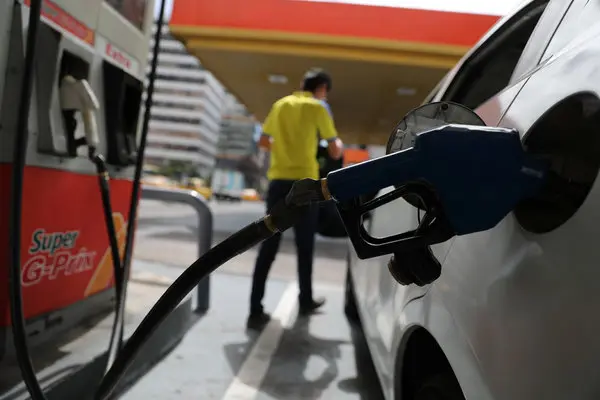The table between the government and indigenous organizations did not specify anything in relation to the fuel subsidy.
All knew that it was going to be difficult to reach a common position, but at least, after the June 2022 strike, there was a willingness and understanding between both parties that the fuel subsidy should be focused. However, when reaching the end of the technical table in charge of this discussion, on October 13th of the same year, the result was not positive.
The act that was signed is clear: “there are no agreements on the targeting of fuel subsidies.”
Both the government and the social organizations that sat down to dialogue for 90 days failed to agree on their perspectives on a fundamental point:
- The establishment of a marketing policy consistent with the management of fuel prices and subsidies, which benefits the agricultural and rural sector and forces sectors with more money to pay more.
Social organizations have strongly emphasized that the subsidy should be removed from sectors such as tuna and shrimp fishing, for example.
In a text published on his Twitter account, Leonidas Iza, president of the Confederation of Indigenous Nationalities of Ecuador (Conaie), criticized the government of Guillermo Lasso. He accused him of protecting the large economic groups that “have benefited the most from subsidies for 20 years.”
However, from the perspective of the organizations there is one certainty, as Henry Llanes, advisor to the National Federation of Peasant, Indigenous and Black Organizations (Fenocin) said in a recent interview: the position is that the government can resolve the discrepancies that arise and it is possible to focus this subsidy.
Even so, the ghost of a new mobilization lurks, since one of the main points that motivated the June 2022 strike was, precisely, the issue of fuel prices.
The social organizations that called for the strike —apart from Conaie, there is the Council of Evangelical Indigenous Peoples and Organizations of Ecuador (Feine) and the National Federation of Peasant, Indigenous and Black Organizations (Fenocin)— proposed in June 2022 that diesel sell for $1.50 per gallon. Regarding Extra and Ecopaís gasoline, they asked that they be sold at 2.10.
The position of the Executive
The government has not said “no” to targeting the subsidy. Actually, in the most recent declarations of representatives of the Executive, the sense is to find the mechanism to do it.
In his most recent television interview, with Carlos Vera, President Guillermo Lasso referred to the issue and assured that the subsidy “cannot be received by the rich; the subsidy is for the poor.” Lasso also said that targeting will be a fact, but that it will be done with care.
On October 13th, before starting what was the last of the fuel table sessions, the Minister of Transport, Darío Herrera, said that the targeting process is long and that it must be constantly reviewed and fine-tuned “to make it more effective.”
Herrera also said that it is not only about removing the subsidy from the sectors that the social movements ask for —referring to the tuna and shrimp boats—, since it is not “the bulk of the cake.” Herrera said that the misused subsidy is “elsewhere” and that “we have to look in that direction.”
In the same interview with Vera, President Lasso did refer to the tuna sector and said that they have an alternative: “change the source of energy, from fossil fuels to electricity.”
On September 27th, at a press conference at the Carondelet Palace, Minister Darío Herrera explained that in order to try to reach agreements at Table 1, that of fuels, it was necessary to form a technical commission.
This commission contributed with information from the Internal Revenue Service (SRI), Petroecuador and the Ministry of Transportation itself so that the table can specify who should receive a fuel subsidy and who should not.
Herrera, in that press conference, highlighted the points on which both parties agreed at the dialogue table, which were the starting points of the dialogue:
- The subsidy exists.
- The subsidy does not reach the people who need it.
- The subsidy is delivered in an inefficient way.


0 Comments